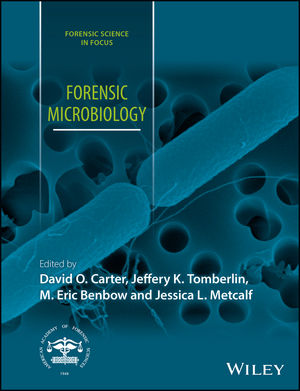In 2017, Chaminade Professor Dr. David Carter co-authored a textbook on the emerging (and groundbreaking) role of microbes in forensic science. Three years later and “Forensic Microbiology” is not only a seminal text in the field, but an Arabic version is slated to be published in December 2021.

Carter, director of the Forensic Sciences program at Chaminade, co-wrote and served as one of the book’s four co-editors to focus on the emerging role of microbiology in forensic science investigations.
As he notes, microbes (or microorganisms) don’t replace more mundane forms of evidence – think fingerprints or cell phone records – but they can prove vital in establishing a cause of death, estimating when a person has died, and analyzing changes to a body after death along with evidence at a scene.
Using microbes – one of the “trendiest” areas of forensic science – can involve cutting-edge DNA analysis or tools and procedures that were invented more than a century ago, Carter previously told Campus News. ““There were folks using microbes in the 19th Century as evidence,” Carter said, adding that some of those techniques were forgotten and then recently unearthed to determine their efficacy.
Why microbes? Because they’re “present everywhere a human goes,” Carter said.
They’re always on us – and in us – “and not all forms of evidence do that.”

The planned Arabic translation of “Forensic Microbiology,” which is already in use at institutions nationally and around the globe, underscores the growing utility of microbiology in forensic science – and how Chaminade’s Forensic Sciences program is at the forefront of that effort.
Indeed, the focus of Carter’s research is the structure and function of the postmortem human microbiome and the process of human decomposition, especially in tropical environments. In his decades of work analyzing crime scenes, Carter has consulted with investigative agencies around the globe, published in high-profile scientific journals, and served as a leader in the academic field.
He has also mentored scores of Forensic Sciences students, including two Chaminade University graduates who contributed to “Forensic Microbiology”: Emily Junkins (’16) went on to pursue a doctoral degree in microbiology while Whitney Kodama (’17) joined the Honolulu Office of the Medical Examiner.



